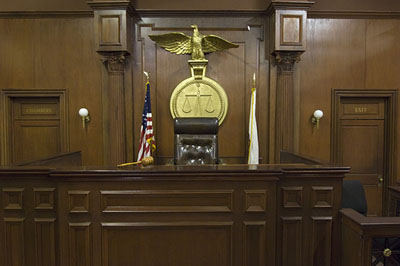 What is immunity?
What is immunity?
We've all heard of the right to remain silent or “taking the Fifth”—essentially refusing to answer questions because the answers may be incriminating. This right –to refuse to answer questions- is guaranteed under the Fifth Amendment to the United States Constitution. It is a right that can be invoked by anyone. It means basically that you cannot be compelled to be a witness against yourself. There are instances however when a prosecutor or as in the Michael Flynn case a congressional committee conducting an investigation- needs testimony from a witness who may be in danger of self-incrimination if he or she testified. To compel the witness to testify the prosecutor or committee can grant the witness immunity. This means that they will promise not to use the witness’ testimony in any potential future case against the witness. By doing this-the witness must then testify. If you are compelled to testify consult with the New Haven based attorneys at Knight & Cerritelli LLC who can help ensure you obtain immunity from criminal charges before answering questions.
What happens if the Witness still refuses to testify?
If the prosecutor or investigative committee does grant immunity to a witness, the witness must testify because the prospect of self-incrimination is no longer present. If the witness continues to refuse to testify after being immunized that witness can be held in contempt of court and possibly be jailed and/or fined.
Does immunity guarantee that the witness will never be prosecuted?
Just because a witness is granted immunity does not mean that that individual will never be prosecuted. The prosecutor can still go after the witness but the prosecution is limited as to how it can use the testimony of the witness. In other words if the prosecution eventually wishes to procure an indictment against a witness who has been granted immunity, the prosecutor must demonstrate that the evidence the prosecutor intends to use against the person in fact came from a source independent of the witnesses’ testimony.
Some states use a broader grant of immunity that guarantees the witness will not be prosecuted at all. The federal government does not grant this type of immunity.
The law office of Knight & Cerritelli LLC can help people understand the type of immunity they have been granted in State and Federal Courts.
So in a federal criminal case—if a witness is later prosecuted how do they raise the issue of immunity?
In the case of a witness who is later prosecuted and wants to argue that he received immunity from prosecution– the witness must argue that the he was granted immunity by the prosecution or as in the Michael Flynn case—the congressional committee- and that his testimony is being used in an improper way. In order to use evidence against the witness the prosecution needs to demonstrate that the evidence they plan on using against the witness came from an independent source and was not linked to the witness’ testimony. The prosecution will have to show how they developed the evidence independent of the witness. Knight & Cerritelli LLC’s criminal defense attorneys can advise clients on how avoid the pitfalls of immunity and criminal prosecution.
How do the Attorneys at Knight & Cerritelli LLC see this issue playing out in the Michael Flynn investigation?
It’s important to note that Michael Flynn- the former National Security Advisor under Trump- has yet to be subpoenaed by the senate sub-committee. As we know the Senate Intelligence Committee is investigating the Trump administration's ties to Russia and whether or not the Russian government was involved in influencing our election. They are also investigating potential ties between the Trump campaign and Russia.
The Committee is definitely interested in speaking with him and he, through his lawyer, made a preemptive move and offered to testify without being subpoenaed if he were granted immunity. The Senate intelligence committee turned down his request for a grant of immunity. Michael Flynn's lawyer in my estimation was being very careful and was quoted as indicating that this is a highly politicized environment and it would be basically malpractice for him to offer up Flynn without an assurance against prosecution. This will play out in the future when no-doubt he will be subpoenaed to testify and will either testify with immunity or publicly invoke his right to remain silent.
Overall immunity is rarely granted by Congress. But Congress does indeed have the power to protect witnesses in this respect even though the Committee is not a prosecutor. In Connecticut federal prosecutors rarely grant immunity to witnesses.

